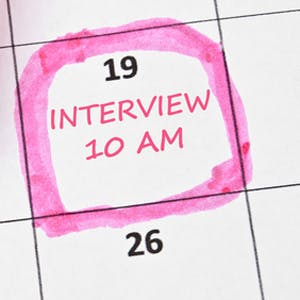Whether you’ve decided running a business isn’t for you, or are looking for some work on the side, there are some small things to avoid during the beginning of your job search that can make a big difference to your chances of landing that new job.
Now that we are coming to the end of the year, many of you will begin to ponder your next moves, which means creating or updating resumes to best reflect your experience.
Your first impression is often your resume. This is the chance to sell yourself and hopefully move to the next stage to a face to face or phone interview.
To make sure you are not passed over because your resume did not truly reflect your successes, here are a few basics that can make all the difference.
1. Make sure it’s relevant
Did you list an objective on your resume or did you include a cover letter? You would be surprised at how many do not match the role applied for. Stating on your resume that your passion is to work for a medical company and then sending it to a property business is not great!
Is the resume straight to the point? Decision makers should be able to identify the relevance of your background to the role with ease. Many hiring managers will simply not have time to sort through all of your hobbies, extra curricular activities and course certificates unless they are directly related to the role you are applying for or your experience.
This is often the deciding factor on whether you are moved to the next stage.
2. Make it simple
Steer clear of garish graphics or patterns. Choose the format best suited to your circumstances, but it’s hard to go wrong with something simple, polished and slick. Best to leave out personal photos and personal information outside of relevant contact details.
Length of a resume can be distracting. It will depend on the years of experience, but there is no need include your complete job history in detail if the roles are no longer relevant to your current career path or job interest. If your resume is still lengthy list the company name, role, dates and few specifics tasks and accomplishments – you can explain these in more detail in the interview if asked.
3. Spelling mistakes
This is a big one, there’s no excuse for spelling mistakes. Always run your document through the spell checker and have someone else read over it. I have seen resumes claiming the person is detail oriented only to find several spelling mistakes!
4. Incorrect contact information
You would be surprised by the number of candidates who provide incorrect contact information, make sure you double-check your personal details.
Keep a list of the jobs you have applied to somewhere handy that you can get to quickly. I have often called people who did not remember what role they applied for or what companies they had applied to. As a hiring manager it comes across as “ I am not truly interested in working for you”.
Answer your phone in a professional manner when you are job searching. It’s about your tone as much as what you say. The first few seconds of interaction can either start the conversation on a positive or a negative note!
Take a look at your email address – if it’s a nickname from University or a tribute to a super hero , it might be a good idea to have a separate one for job hunting! What about your voice mail? Does it send off the right impression of you?
Your LinkedIn account should reflect the information on your resume, so check it’s consistent.
5. Lies, lies, and more lies
There are consequences to fabricating or exaggerating credentials. Your integrity and credibility are at risk. Many clients and the majority of agencies will directly check documents and certificates for validity. In many cases they may also know you through their own connections.
There is no such thing as a perfect resume. Remember that the best resumes we see are the ones that market the candidate effectively, portray them as a solution-provider and are easy to understand.
Best of luck in your job search!

